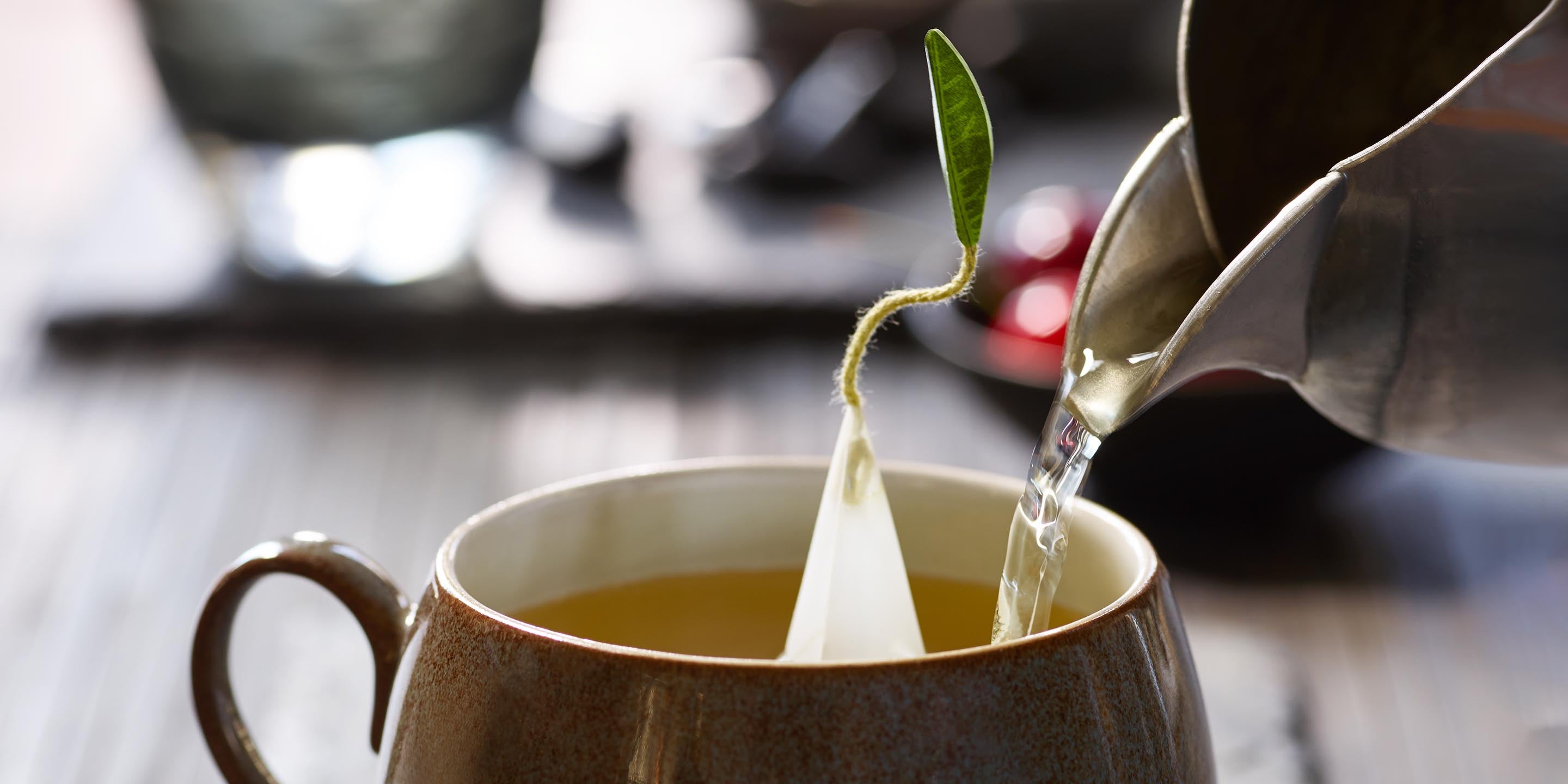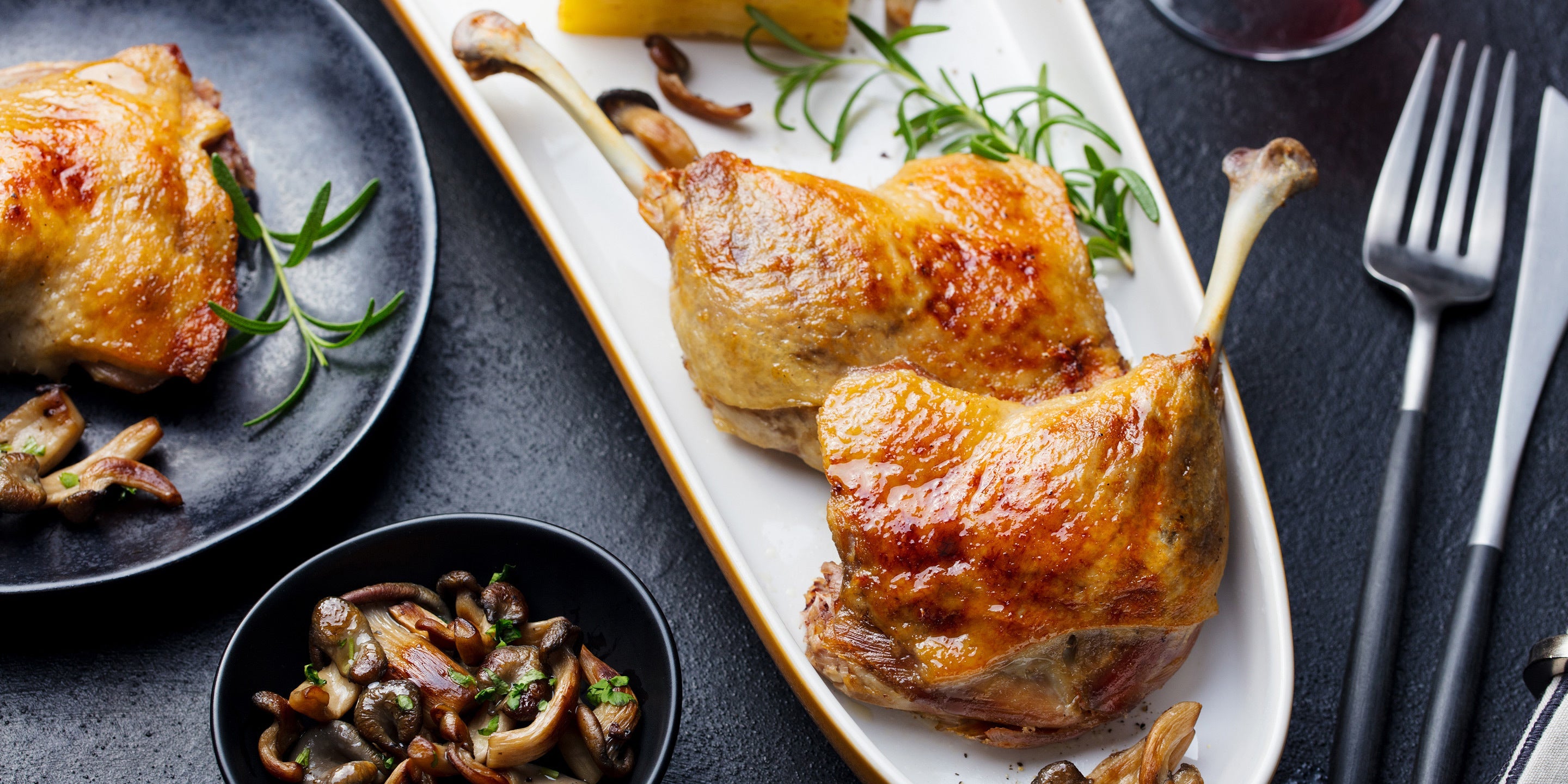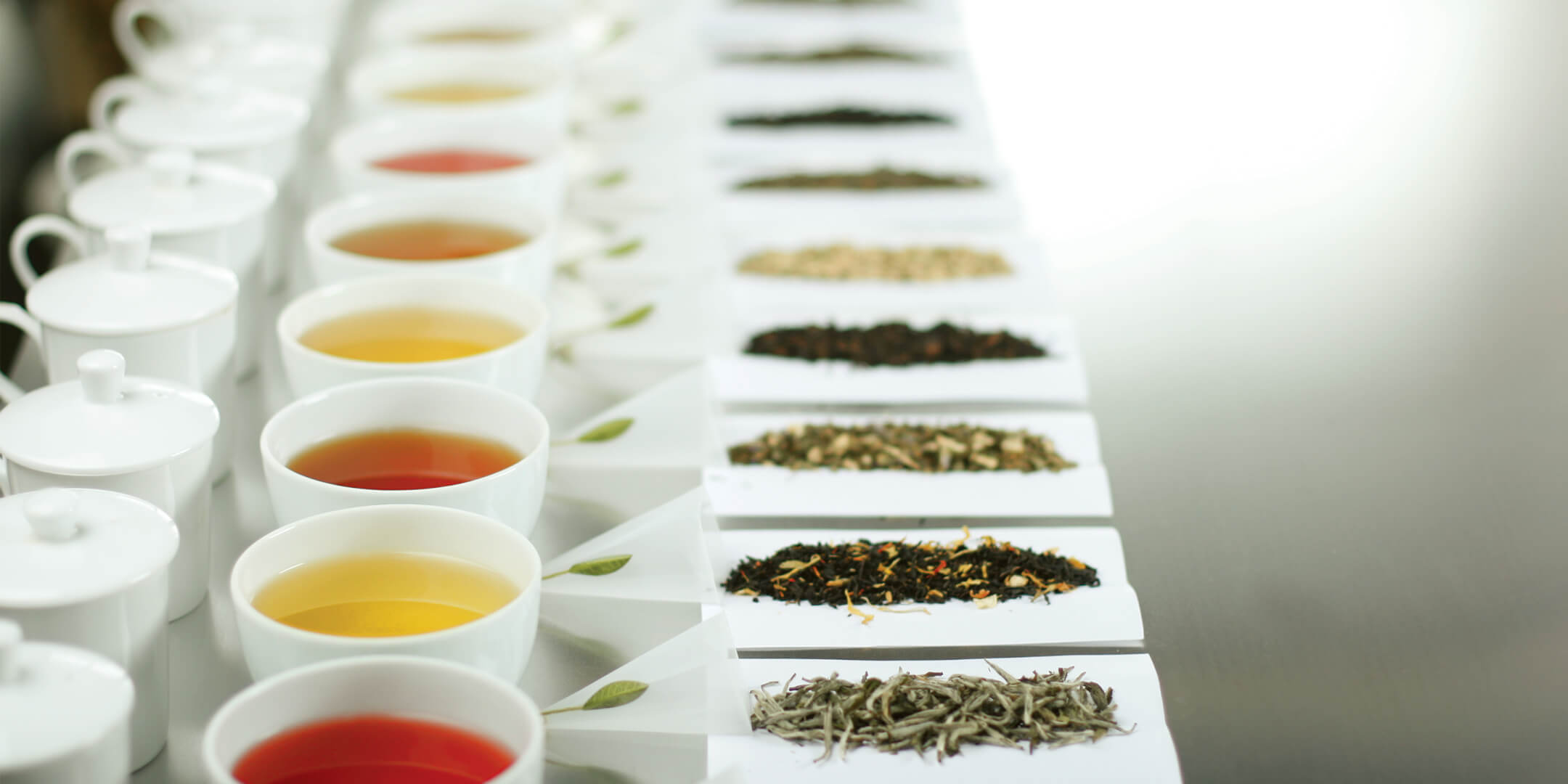Some people go to work every day and put their mathematical, verbal, technical, or mechanical skills to use throughout the day, putting their expertise into practice and expanding their expertise over time. That's what Tea Forté's official Tea Sommelier, Piotr Miga does too, but instead of relying on the usual skill sets most people use to build their careers, he calls on his own sensorial abilities; namely, his highly refined palate combined with an encyclopedic knowledge base in tea. We sat down with Piotr to talk about his role at Tea Forté from how he got started to what tea accessories he can't live without. Read on to immerse yourself in the singular, fascinating world of a world-class tea sommelier.
Q: What is your official role at Tea Forté?
A: Head of Quality and Compliance; Tea Sommelier (Master Blender).
Q: In your own words, what is a Tea Sommelier?
A: A tea expert with well-gifted and trained sensory abilities.
Q: What kind of education goes into becoming a Tea Sommelier? How long does it take to become certified?
A: It’s an intense program via The World Tea Academy. First, you need to take six core courses to become certified as a Tea Specialist. Then the Tea Specialist certification pre-qualifies you to take up the Tea Sommelier program, which is an additional seven advanced courses. It took me approximately 1.5 years to complete it but can take anywhere from two to three years depending on your speed.

A: My abilities were discovered and developed in my first career choice after college while working at a flavor company; the research & development team assessed my sensory faculties and found them to be very sensitive and perceptive; so, in addition to leading the Quality Assurance process, I was regularly taking part in new flavor development taste panels alongside flavor chemists.
Q: What is your favorite part of being a Tea Sommelier? What’s the most challenging part?
A: It’s one of the most exciting parts of my job, but it’s not just about understanding tea, origins, and quality of the product—it also takes creativity and inspiration, which I frankly enjoy! It’s not something you can push yourself to do. You need to let it happen, and sometimes the best thing is to walk away and come back the next day.
Q: Is there a particular way to drink tea?
A: There are many ways to drink and enjoy tea, and they all vary across origins and markets, be it China, Japan, India, Europe, or the United States. Here in the US, we are less orthodox in our tea approach, whereas people across Asia tend to take it a bit more seriously with a more orthodox approach to tea, ceremony, accessories, flavors, and so on. An example of traditional tea style and etiquette would be the more classic East Asian techniques, e.g. Japanese Chanoyu, which is very ritualistic and can be traced back to the dawn of Zen Buddhism, or the Chinese Gongfu tea ceremony, which essentially translates to “making tea with skill;” it involves special preparation with a specific set of accessories and dates back to the 18th century.
In the west, we have what is known as "afternoon tea," which is very popular in the UK, and other countries are developing their own equivalents. For example, Le Gouter is a French afternoon tea or high tea combined with a snack to keep you going until dinner! In the US, afternoon tea is also popular, but there's great emphasis on iced tea, especially in the southern parts of the country. Overall, aside from various traditional styles of drinking tea, it’s important to remember you can make it part of your own individual ritual and daily experience.
Q: What is the perfect cup of tea in your eyes (or, rather, to your palate)?
A: It’s a rather subjective question; however, in my opinion, there are perfect cups for different occasions. When it comes to black tea, I personally prefer Darjeeling origin (like Tea Forté's Estate Darjeeling); I also love herbals and botanicals, and one of my favorites is Tea Forté's Blueberry Merlot, which is also an award winner.) Around lunchtime, I enjoy green tea (Cherry Blossom is a perfect choice). I’m also a fan of cold tea, especially popular in the US – and Iced Mango Peach and Iced Raspberry Nectar are one of my favorites.
Q: How does one prepare a perfect cup of tea?
A: Water quality, temperature, and steep time are all important factors in optimizing the taste experience. Starting with water, it’s best to use one with natural pH of 7. If you use water that is pH 8 + or higher, even if it’s spring water, the minerality will impact the taste and can cause bitterness. I would recommend good quality bottled or spring water, or tap—filtered if needed, but a good quality tap doesn’t need filtration. You want to reduce any off-notes found in the water as well. This is especially important when drinking more delicate teas like green or white, which require a lower temperature of 175˚ F, and a shorter steeping time of 2-3 minutes. For black and herbal teas, the optimal temperature is 208˚ F with 5 minutes of steep time; for oolongs, it’s also a 5-minute steep but using a cooler water of 195˚ F.
Q: If you could only drink one tea for the rest of your life, what would it be?
A: Haha, a very tough question! It would most likely be Estate Darjeeling.
Q: If someone is new to tea, what tea would you recommend to get started?
A: It would depend on preference; however black tea, is a good place to start and then move to herbal teas. After that, explore green and white teas.
Q: What is your favorite tea you’ve created while being with Tea Forte?
A: Cherry Blossom green tea, which is also known as our Hanami Collection.
SHOP CHERRY BLOSSOM HANAMI
Q: Where in the world have you tasted the best tea?
A: China's Yunnan province (30-year-old aged wild Pu’er tea). It’s similar to tasting 50-year-old-aged Champagne or wine vintage; something an aficionado would appreciate.
Q: What is your favorite tea pairing?
A: Delicate green or white tea and various cheese varieties. Or black tea and something sweet.
Q: Do you recommend any tea accessories to make a perfect cup of tea?
A: Our signature pyramid infuser optimizes steeping/leaf extraction and is a perfect replacement for a regular tea bag. If you enjoy loose tea, our ceramic KATI® Steeping Cup with stainless-steel infuser is a perfect combination. For iced tea lovers, I recommend our Tea Over Ice® Pitcher Set.
Q: How similar is tea to wine tasting?
A: On a sensory level, there are some similarities, but the tea world is a lot more creative, with many cultivars and botanicals outnumbering those of grapes. In addition, tea is just an overall better beverage for you, whether it’s more benefits for your well-being, no headaches or hangovers, generally more affordable, you can make it part of your daily ritual and ceremony... I believe it’s also more relatable than wine.
Q: What's a day in the life of a tea sommelier like? Although no two workdays are the same, what are some things you do often as a function of your role?
A: As a tea sommelier, I do my best to spend a set amount of time on a daily basis just for tea. This means clearing your mind, doing a thorough organoleptic sensory review, and jotting it down with all the tasting notes, flavors, and experience of the tea being tasted that specific day. Sometimes you can write one page of tasting notes and experiences during a thorough sensory review for just one tea!
Q: What are your earliest memories of drinking tea?
A: Growing up Easter in Europe, black tea was an after-dinner drink of choice in my family and something I can trace back to my early childhood.
Q: Why do you think people enjoy tea so much? What makes it more special than other beverages?
A: I don’t look at tea being entirely exclusive to other beverages like coffee; however, when you look at the benefits, the creativity of combining tea (which is from the plant) and hundreds of botanicals, the fact that it's plant-based, and in the case of Tea Forté, sustainably and organically sourced with superior natural and sensory experiences in mind, the advantage of tea beverage over others is a no-brainer. I would highly recommend adding it to your beverage of choice bucket list.
Q: What's your favorite part of your job—the thing you enjoy the most about what you do?
A: When I focus purely on tea.
Q: What's a tea accessory you can't live without?
A: An electric water kettle with various water temperature settings ranging from 175-208˚ F. It makes all the difference!
There's something for everyone at Tea Forté, whether you're a new tea drinker or a seasoned enthusiast. Here's your invitation to explore the world of tea.
SHOP PIOTR'S FAVORITES
You may also enjoy

Tea Preparation
How to Steep the Perfect Cup of Tea

Tea Origins & Ceremony
Tea Quiz: Test Your Tea Knowledge



